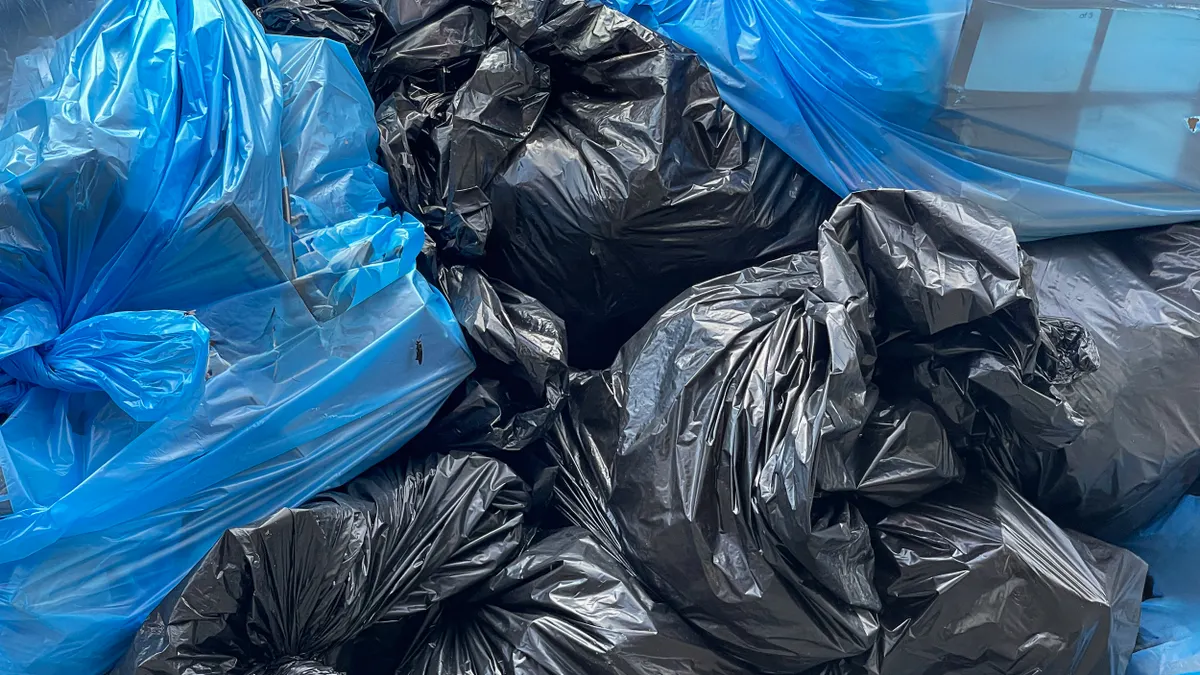Numerous advocacy groups working to update and pass bottle bills in the U.S. say they’ll need to team up to more quickly and effectively pass new state and federal legislation.
More than a dozen representatives of nonprofits, activist groups and brands spoke during a webinar hosted by the National Stewardship Action Council on Thursday. They made the case for deposit return systems as the best chance for the U.S. to reduce litter, boost recycling infrastructure and collect enough recycled material to meet companies’ recycled content commitments. Yet each year, numerous bottle bill updates are introduced in state legislatures and few pass.
“We just want to build this army to get a national bottle bill and to get them passed in states,” said Heidi Sanborn, NSAC’s executive director.
One key hurdle bottle bills face is stakeholder disagreement over program structure, speakers said. The 10 U.S. states with bottle bills each run their programs slightly differently, with states like Oregon opting for a distributor-run system while California’s is government-run.
MRF operators and haulers are among the stakeholders wary of certain bottle bill structures. The National Waste & Recycling Association recently published a white paper making the case that bottle bills can hurt MRF operators because they divert valuable materials away from MRFs. “This reduces the overall value of materials collected through curbside recycling programs that feed MRFs,” NWRA says, which could lead to lost revenue and higher operating costs.
Sanborn said the term “bottle bill” has also become polarizing because of the politics behind some of the years-long efforts to update existing container deposit laws or introduce new ones. She and other advocates instead are beginning to call such legislation “recycling refunds.”
“We’ll get a lot better traction with a broader audience if we call it ‘recycling refunds’” because it better describes the intended outcome of the bill, she said.
Efforts to change the terminology came from a voter survey commissioned by the Can Manufacturers Institute, which found that 81% of people polled supported deposit return systems. CMI advocates for bottle bills as a crucial way to boost U.S. aluminum can recycling rates to 70% by 2030.
The NSAC bottle bill event came just as numerous states are again introducing bottle bills or proposing expansions. Illinois has reintroduced legislation that calls for creating a bottle bill in the state with at least a 10-cent deposit.
Meanwhile, New York is considering significant bottle bill updates, including one advocates call a “Bigger Better Bottle Bill” proposal that would add carbonated beverages, wine and liquor to the bottle list and raise the deposit from five to 10 cents. Washington’s proposed WRAP Act includes a bottle bill with a 10-cent deposit, along with an EPR program for packaging and printed paper. The bill also calls for recycling and reuse targets.
California aims to add 100% juice containers to its program this year. Elsewhere, legislators are considering bottle bill updates in Vermont, Rhode Island and Massachusetts. Janet Domenitz, executive director of MASSPIRG, said Massachusetts has been in a years-long “boxing match” to update its bottle bill for modern times.
Activists calling for a national bottle bill are also continuing their work this year and are planning to introduce a national container deposit bill soon, Sanborn said.
Bottle bill advocates also expect the Break Free From Plastic Pollution Act to be reintroduced soon, “and we're hoping with a lot more support from other legislators so there's a broad coalition from advocates and from legislators,” Sanborn said. The Break Free bill, last introduced in 2021, included a national container deposit program along with an EPR provision, minimum recycled content standards for beverage containers and bans on some single-use plastics.
The American Chemistry Council is likely to introduce an alternative to the Break Free bill soon, according to Plastics News. ACC has said it supports certain “American-designed” models for producer responsibility for packaging.
Advocates say it’s critical to coordinate efforts since so many groups are working to pass laws in their state or jurisdiction.
Scott DeFife, president of the Glass Packaging Institute, said the glass recycling sector would particularly benefit from bottle bill expansions because glass can be exposed to contamination issues in traditional MRFs. The 10 states with existing bottle bills provide the industry with more than half the recycled glass used to make new containers, he said. If bottle bill advocates can better coordinate campaign efforts across the country, future bottle bill expansions could make an “extreme difference” in glass markets.
In the meantime, more work needs to be done to bring additional stakeholders to the table — particularly MRFs and haulers, who have been generally supportive of certain bottle bill updates in places like California but have not gotten on board in some other states, Sanborn said. “They have to be compensated for their business,” she said.
Working with retailers that accept bottle returns is another important facet, Sanborn added. The National Retailers Association, which sent written comments, advocates for bottle bill models that make it optional for retailers to participate as a deposit return location, similar to an update Iowa made to its bottle bill last year. Retailers are also asking for better compensation for the time, labor and space needed to store bottles, the association said.



















